
September 4
476 Western Roman Empire falls:
Romulus Augustus, the last emperor of the Western Roman Empire, is deposed by Odoacer, a German barbarian who proclaims himself king of Italy.
Odoacer was a mercenary leader in the Roman imperial army when he launched his mutiny against the young emperor. At Piacenza, he defeated Roman General Orestes, the emperor's powerful father, and then took Ravenna, the capital of the Western empire since 402. Although Roman rule continued in the East, the crowning of Odoacer marked the end of the original Roman Empire, which centered in Italy. (History.Com)
1891 Birth: Fritz Todt: German engineer and senior Nazi figure, the founder of Organization Todt:
Todt joined National Socialist German Workers Party (NSDAP) in 1922 and later the Schutz Staffel (SS). In 1930 Todt published a paper, Proposals and Financial Plans for the Employment of One Million Men. Adolf Hitler was impressed by the paper and when he came to power in 1933 he appointed Todt as head of the new state-owned Reichsautobahnen Corporation and was given the task of building a national highway system. Todt also helped to establish the Nationalsozialistischer Bund Deutscher Technik that helped to organize engineers and managers in the German construction industry. He also built the great defensive systems, the West Wall that protected Germany's western frontier.
1914 World War I: Various: List Regiment (Sep 1-Oct 7): France:
Declaration: M. Delcasse, Minister for Foreign Affairs, to the French Ambassadors and Ministers abroad: "The following declaration has this morning been signed at the Foreign Office at London:
The undersigned duly authorized thereto by their respective Governments hereby declare as follows: 'The British, French, and Russian Governments mutually engage not to conclude peace separately during the present war. The three Governments agree that when terms of peace come to be discussed, no one of the Allies will demand terms of peace without the previous agreement of each of the other Allies."
1915 World War I:List Regiment : Gefreiter Adolf Hitler's 16 Reserve Infantry Regiment continue to occupy a position, at Fromelles—pictured above in a drawing by Hitler—which is on a level field with water channels, willow trees and willow stalks. In the distance towards the enemy lines lies an insignificant wood with barbed wire entanglements. Under the direction of their defense-minded commander, Lieutenant General Gustav Scanzoni von Lichtenfels, the regiment works ceaselessly day and night to further fortify their position at Fromelles while fighting off repeated assaults by the enemy. [For further details, Click here.] 1916 World War I: List Regiment: Gefreiter Adolf Hitler endures trench warfare in Flanders (Artois) with 3 Company, 16 Reserve Infantry Regiment [List Regiment]. [For further details, Click here.] 1917 World War I: Various: List Regiment (July 22-September 8): The American expeditionary force in France suffers its first fatalities:
The American Expeditionary Force that went to France in 1917 and 1918 was a sketchily trained army built around a core of fewer than 130,000 prewar regular soldiers. [The recruitment goals authorized in the National Defense Act had not been met.] National guardsmen called to duty had a solid basis of military training, but the bulk of the AEF consisted of volunteers and draftees who had never been in uniform before.
1918 World War I:Various: List Regiment (August 21-September 27): Gefreiter Adolf Hitler attends a signals training course in Nuremberg. [For further details, Click here.] Statement Given to Newspapers on this day by Crown Prince Wilhelm:
Regarding the American forces in France, I've found that the majority don't know what they are fighting for, but we feel, of course, the effect of the entry of the Americans. They have sent over very much material, and are now sending very much human material. The French fight brilliantly and are bleeding to death. They do not hesitate at any sacrifice. With the English, the individual man is very good and tenacious, but the leadership is deficient. Among the Americans I have found that the majority do not know what they are fighting for. I asked an American prisoner what they are fighting for and he answered, "For Alsace." Then to the question, "Where is Alsace," he replied, "It's a big lake."
Russian Civil War: American troops land at Archangel:
On September 4, 1918, United States troops land at Archangel, in northern Russia. The landing was part of an Allied intervention in the civil war raging in that country after revolution in 1917 led to the abdication of Czar Nicholas II in favor of a provisional government; the seizure of power by Vladimir Lenin and his radical socialist Bolshevik Party; and, finally, Russia's withdrawal from participation alongside the Allies in World War I.
By the spring of 1918, after the Treaty of Brest-Litovsk ended Russia’s war effort against the Central Powers, the country was embroiled in a heated internal conflict. Supporters of the Bolsheviks-known as the Reds-faced off against the Whites, anti-Bolshevik forces loyal to the provisional government, in a power struggle aimed at defining the future course of the Russian state. In this struggle, the leaders of Britain, France and the United States definitively favored the Whites, harboring as they did an intense fear and misunderstanding of Lenin and his forces of radical socialism. With some hesitation, they determined to launch an intervention into the Russian civil war, aimed at defeating the Bolsheviks and installing the Whites in power again, hoping this eventuality would draw Russia back into the war against the Central Powers.
A document issued by the U.S. State Department in July 1918 set the terms by which the U.S. would participate alongside the other Allied powers in the so-called "interventions" in Russia: three infantry battalions and three companies of army engineers would be sent to Archangel to join the British troops already there. A small force would also be sent to Vladivostok, where a force of Czecho-Slovak troops bent on continuing the fight against the Central Powers had claimed the Russian city as an Allied protectorate early in July. According to the State Department, Allied responsibilities in Russia were clear: "Each of the associated powers has the single object of affording such aid as shall be acceptable, and only such aid as shall be acceptable, to the Russian people in their endeavor to regain control of their own affairs, their own territory, and their own destiny."
The Allied intervention in Russia would continue throughout the end of World War I and the peace negotiations at Versailles, from which the Russian Bolsheviks were excluded. By October 1919, White Russian forces were in full retreat in the south, and Lenin and his Bolsheviks had effectively consolidated power for their regime. Recognizing the futility of their intervention in the costly and distant conflict in Russia, Allied forces began to withdraw. By the time the American troops completed their evacuation of Vladivostok and Archangel, 174 of them had been killed in action or died of wounds incurred over the course of the intervention. (History.com)
1933 Fuhlsbuettel Prison in Hamburg is turned over to the Gestapo:
After gaining power in Hamburg at the beginning of March 1933 the National Socialists began their persecution of the political opposition. Almost immediately the Hamburg police established a concentration camp within buildings inside the Fuhlsbuettel prison. Here opponents of the NS regime, socialist and communist activists, were incarcerated for an indeterminate period. This initial unofficial action by the police was legitimated by the NSDAP Regional Administrator and Reich's Governor Karl Kaufmann on 4 September 1933 when he officially assigned the administration and custody of the Fuhlsbuettel Concentration Camp to the totally unscrupulous and exceptionally brutal SS and SA. Fuhlsbuettel Concentration Camp was called in contemporary usage "Kola-Fu," an abbreviation of Konzentrationslager Fuhlsbuettel, and became within a very short time the embodiment of horror, suffering, and death. From its establishment to the liberation in May 1945 over 250 men and women died due to the unbearable circumstances, from maltreatment, or were murdered.
Fuhlsbuettel Concentration Camp was from 1936 onwards [publicly] only allowed to be referred to as a "Police Prison" in order to conceal its real function, however, "Kola-Fu" Fuhlsbuettel Concentration Camp or "Gestapo Prison" remained more appropriate synonyms. Almost all the arrested members of the resistance were imprisoned in "Kola-Fu," and from 1935 onwards numerous Jehovah's Witnesses and Jews (over 700 were imprisoned after the pogroms on the 9./10. November 1938), and in following years more and more of those disaffected with the NS regime e.g. juvenile fans of American swing-music, and those whom the National Socialists stigmatized and persecuted as "asocial" and "vermin" e.g. Sinti, beggars, homosexuals and prostitutes. During the war foreign resistance fighters and those sentenced to slave labour were also imprisoned here.
1935 The League of Nations meets to discuss Mussolini's aggression against Abyssinia (Ethiopia):
In the 1930s, the Italian dictator Mussolini wanted to build an Italian empire. The African country of Abyssinia was next to the Italian colony of Somalia. The area was desert. In December 1934, Italian soldiers attacked a party of British and Abyssinian investigators at the oasis at Wal-Wal, in Abyssinia.
In January 1935 Abyssinia asked the League of Nations to arbitrate. Mussolini refused League of Nations arbitration. Instead, four days later, he made a treaty with France: France would let Italy conquer Abyssinia if Italy would support France against Germany. The Italians army got ready to invade. Haile Selassie, the emperor of Abyssinia, asked for a meeting of the League. In July, the League banned arms sales to either side (this hurt the tiny Abyssinian army much more than the Italians, who had tanks and bombers, and were ready to attack).
At the League, Britain talked about 'collective security' and said the League should defend Abyssinia. In September, the League appointed a five-power committee to arbitrate in Abyssinia. It suggested that Italy should have some land and power in Abyssinia. Both Haile Selassie and Mussolini refused to accept the League's plan. In October 1935, Italy's 100,000 strong army invaded Abyssinia.
1936 Holocaust: Germany: The Berlin Labor Court rules that German employees who marry Jews or other 'non-Aryans' may be dismissed from their jobs. (THP)
1937 Rotary Club: Nazi officials order all chapters in Germany dissolved. (THP)
1939 World War II: Various:
Poland: I received your letter with thanks, and am grateful for your message of congratulations. Conscious of my poor qualifications for so responsible a post, I feel lost to find myself suddenly promoted to the Combined Fleet. Had this been a part of a periodic personnel shift, this post would have been yours as a matter of course. But the policy this time seems to have been to confine the scope of the shuffle to the minimum; and it seems that you are already slated to succeed (Admiral Koshiro) Oikawa some time between December and April. While that may mean that you will again be asked to undertake the bothersome task of disposing of various difficult problems that arise, maybe that, too, stems from the machinations of Ribbentrop and Hitler. In that connection, I shudder as I think of the problems of Japan's relations with Germany and Italy in face of the tremendous changes now taking place in Europe. Poland: With Hitler's consent, Hermann Goering makes a speech asking for a settlement with Poland. The British, literally going over both of their heads, broadcasts a direct appeal to the German people by Prime Minister Chamberlain:
You are told by your Government that you are fighting because Poland rejected your Leader's offer and resorted to force. What are the facts? The so-called "offer" was made to the Polish Ambassador in Berlin on Thursday evening, two hours before the announcement by your Government that it had been "rejected." So far from having been rejected, there had been no time even to consider it. Your Government had previously demanded that a Polish representative should be sent to Berlin within twenty-four hours to conclude an agreement. At that time the 16 Points subsequently put forward had not even been communicated to the Polish Government. The Polish representative was expected to arrive within a fixed time to sign an agreement which he had not even seen. This is not negotiation. This is a dictate. To such methods no self-respecting and powerful State could assent. Negotiations on a free and equal basis might well have settled the matter in dispute.
Poland: At Bydgoszcz, a thousand Poles are murdered, including several dozen Boy Scouts who are shot against a wall by German troops.
The Germans by the abuses they are committing in Poland are piling up a mountain of crimes such as the world has never seen. But the destinies of the world and of nations are not in the hands of Germans but of God. The Germans' crimes will not kill Poland and will ultimately fall back upon the Reich with the full weight of the responsibility.
Attack on Wilhelmshaven: British Blenheim and Wellington bombers attack the German naval facilities at Wilhelmshaven. Of the 29 bombers that take off from England, 5 fail to find the target and 7 are shot down. The only serious damage is done by a Blenheim that manages to crash into the bow of the cruiser Emden, killing a number of sailors. (THP)
Attack on Admiral Scheer: British planes attack the German warship, but the bombs fail to explode; the RAF will drop leaflets for the next few months because the government forbids bombing German industry as "it is private property."
American neutrality proclaimed by Cordell Hull.
Australia and New Zealand declare war on Germany.
1940 World War II: Various:
War in the Air:
War at Sea: The USS Greer is fired upon:
On this day in 1940, the American destroyer Greer becomes the first U.S. vessel fired on in the war when a German sub aims a few torpedoes at it, sparking heightened tensions between Germany and the United States.
It was a case of mistaken identity. As the Greer made its way through the North Atlantic, a British patrol bomber spotted a German sub, the U-652. The British bomber alerted the Greer, which responded by tracking the sub. As the American destroyer approached Iceland, the area in which the sub had been spotted, a British aircraft dropped a depth charge into the water, rocking the sub. The U-652, believing the Greer responsible for the charge, fired its torpedoes. They missed. The Greer made it safely to Iceland. Although the United States was still officially a neutral country, Roosevelt unofficially declared war on anyone who further attacked American vessels in the North Atlantic: "If German or Italian vessels of war enter these waters, they do so at their own peril." (History.com)
1942 Various:
From a conference report:
The Fuehrer has ordered the immediate importation of 400,000 to 500,000 female domestic eastern workers from the Ukraine between the ages of 15 and 35 and has charged the Plenipotentiary for Allocation of Labor with the execution of this action which is to end in about 3 months. In connection with this, this is also approved by Reichsleiter Bormann-the illegal bringing of female housekeepers into the Reich by members of the Armed Forces, or various other agencies is to be allowed subsequently and, furthermore, irrespective of the official recruiting, is not to be prevented . . . . Generally one gathered from this conference that the questions concerning the recruitment and mobilization, as well as the treatment of female domestic workers from the east, are being handled by the Plenipotentiary for Allocation of Labor, the Reichsfuehrer SS, and the Chief of the German Police and the Party Chancellery, and that the Reich Ministry for the Occupied Eastern Territories is in these questions considered as having no, or only limited, competence.
SS Dr. Johann Paul Kremer's Auschwitz Diary: "To combat the diarrhea: 1 day of gruel and peppermint tea, followed by a week's special diet. Charcoal and Tannalbin at intervals. Already considerably better."
1943 World War II: FDR and Churchill to Stalin:
The military situation there (Italy) is both critical and hopeful. The mainland invasion begins almost immediately while the heavy blow called 'Avalanche' will be delivered in the next week or so. The difficulties of the Italian Government and people in escaping the clutches of Hitler may make a still more daring move necessary, for this General Eisenhower will require as much Italian help as he can get. The acceptance of the terms by the Italians is largely supported by the fact that we shall send an air-borne division to Rome to help them hold off the Germans who have gathered Panzer strength near there and who may replace the Badoglio Government with a Quisling administration probably headed by Farinacci . . . . We are, of course, anxious that the Italian surrender be to the Soviet Union as well as to the United States and Britain. The date of the surrender announcement must, of course, be fitted in with the military coup.
1944 World War II: Various:
Churchill to FDR:
I share your confidence that the Allied divisions we have in Italy are sufficient to do the task before them and that the battle commander will press the battle unrelentingly with the objective of shattering the enemy forces. After breaking the German forces on the Gothic Line we must go on to use our divisions in the way which best aids General Eisenhower's decisive drive into the enemy homeland . . . . I strongly feel that we must not stint in any way the forces needed to break quickly through the western defenses of Germany . . . . With the present chaotic conditions of the Germans in Southern France, I hope that a junction of the north and south forces may be obtained at a much earlier date than was first anticipated . . . .
The Women of Warsaw to the Pope:
Most Holy Father, we Polish women in Warsaw are inspired with sentiments of profound patriotism and devotion to our country. For three weeks, while defending our fortress, we have lacked food and medicine. Warsaw is in ruins. The Germans are killing wounded in hospitals. They are making women and children march in front of them to protect their tanks. There is no exaggeration of reports of children who are fighting and destroying tanks with bottles of petrol. We mothers see our sons dying for freedom and the fatherland. Our husbands, our sons, and our brothers are not considered by the enemy to be combatants. Holy Father, no one is helping us. The Russian armies which have been for three weeks at the gates of Warsaw have not advanced a step. The aid coming to us from Great Britain is insufficient. The world is ignorant of our fight. God alone is with us.
The British War Cabinet to the Soviet Government:
Public opinion in this country is deeply moved by the events in Warsaw and the terrible sufferings of the Poles there. Whatever the rights or wrongs about the beginnings of the Warsaw rising, the people of Warsaw themselves cannot be held responsible for the decision taken. Our people cannot understand why no material help has been sent from outside to the Poles in Warsaw. The fact that such help could not be sent on account of your government's refusal to allow United States aircraft to land on aerodromes in Russian hands is now becoming publicly known. If on top of all this the Poles of Warsaw should now be overwhelmed by the Germans, as we are told they must be within two or three days, the shock of public opinion here will be incalculable. The War Cabinet themselves find it hard to understand your governments refusal to take account of the obligations of the British and American Governments to help the Poles of Warsaw. Your Governments action in preventing this help being sent seems to us at variance with the spirit of Allied cooperation to which you and we attach so much importance both for the present and the future.
Battle of the Scheldt: British troops enter the city of Antwerp, Belgium.
1945 World War II: Japanese surrender on Wake Island:
On this day in 1945, 2,200 Japanese soldiers finally lay down their arms-days after their government had already formally capitulated.
Wake Island was one of the islands bombed as part of a wider bombing raid that coincided with the attack on Pearl Harbor. In December of 1941, the Japanese invaded in force, taking the island from American hands, losing 820 men, while the United States lost 120. The United States decided not to retake the island but to cut off the Japanese occupiers from reinforcement, which would mean they would eventually starve. Rear Adm. Shigematsu Sakaibara, commander of the Japanese forces there, ordered the 96 Allied prisoners of war who had been left behind shot dead on trumped-up charges of trying to signal American forces by radio.
And so the Japanese garrison sat on Wake Island for two years, suffering the occasional U.S. bombing raid, but no land invasion. In that time, 1,300 Japanese soldiers died from starvation, and 600 from the American air attacks. Two days after the formal Japanese surrender onboard the USS Missouri, Sakaibara capitulated to American forces, which finally landed on the island. Sakaibara was eventually tried for war crimes and executed in 1947. (History.com)
1946 Nuremberg Tribunal 1949 USA: Anti-communist riots erupted after a concert by Paul Robeson
near Peekskill, New York. [For further information, click here]
1951 USA: In the first live coast-to-coast TV broadcast, President Harry S. Truman addresses the nation from the Japanese peace treaty conference in San Francisco. (AP)
1957 USA: Little Rock becomes a Cold War hotspot:
Under orders from the governor of Arkansas, armed National Guardsmen prevent nine African-American students from attending the all-white Central High School in Little Rock. What began as a domestic crisis soon exploded into a Cold War embarrassment.
The United States and the Soviet Union engaged in a heated and costly war of words during the early years of the Cold War. Propaganda became an important weapon as each nation sought to win the "hearts and minds" of people around the world. In this war, the United States suffered from one undeniable weakness: racial discrimination in America. This was a particularly costly weakness, for it made America's rhetoric about democracy and equality seem hollow, especially to people of color in Africa, Asia, and Latin America. The Soviets eagerly seized on the issue, and tales of the horrors suffered by African Americans in the United States became a staple of their propaganda. In 1954, however, the monumental Supreme Court case of Brown v. Topeka Board of Education declared segregated schools unconstitutional and ordered school integration to proceed "with all deliberate speed." The case was trumpeted by the American government's propaganda as evidence of the great strides being made toward full equality for all citizens.
In 1957, a Federal District Court ordered the all-white Central High School in Little Rock, Arkansas, to allow African-American students to attend. Governor Orval Faubus declared that he would not follow the decree. When nine African-American students attempted to enter the school on September 4, 1957, a crowd of several hundred angry and belligerent whites confronted them. Hundreds of National Guardsmen, called up by Faubus, blocked the students' entry into the school. To the chants of "Go home, niggers" from the mob, the nine students left. Faubus's action won him acclaim in his home state, and in much of the South, but it was a serious embarrassment to the administration of President Dwight D. Eisenhower. Eisenhower himself was no great supporter of civil rights, but he understood the international significance of the events in Little Rock. Pictures of the angry mob, the terrified African-American students, and National Guardsmen with guns and gas masks were seen around the world. The Soviets could not have created better propaganda. Secretary of State John Foster Dulles informed Eisenhower that the Little Rock incident was hurting the United States overseas, and might even cost the country the support of other nations in the United Nations. Eisenhower tried to negotiate a settlement with Faubus, but when this failed, he sent in federal troops. The nine African-American students were finally allowed to attend Central High.
The Little Rock incident indicated that America's domestic problems, particularly racial discrimination, could not remain purely domestic in the context of the Cold War. The United States portrayed itself as the defender of democracy, justice, and equality in its struggle with the Soviet Union and communism. The ugly reality of the Little Rock integration, however, forced both allies and enemies to question America's dedication to the principles it so often professed.(History.com)
Hess has been in bed for two days. The doctor could find nothing wrong. Schirach commented to the guards that Hess was laying the grounds for another suicide attempt. By chance I heard Pease tersely reproving Schirach: "After all, it's the last right Hess has; if he makes up his mind to it, it should not be taken from him." (Speer II)
1969 Vietnam War: Radio Hanoi announces the death of Ho Chi Minh:
Radio Hanoi announces the death of Ho Chi Minh, proclaiming that the National Liberation Front will halt military operations in the South for three days, September 8-11, in mourning for Ho. He had been the spiritual leader of the communists in Vietnam since the earliest days of the struggle against the French and, later, the United States and its ally in Saigon. Chinese Premier Chou En-Lai and a delegation from China held talks with First Secretary Le Duan and other members of the North Vietnamese Politburo. The Chinese leaders assured the North Vietnamese of their continued support in the war against the United States. This support was absolutely essential if the North Vietnamese wished to continue the war. Many in the United States hoped the death of Ho Chi Minh would provide a new opportunity to achieve a negotiated settlement to the war in Vietnam, but this did not materialize. (History.com)
Edited by Levi Bookin (Copy editor) Click to join 3rdReichStudies Disclaimer: This site includes diverse and controversial materials—such as excerpts from the writings of racists and anti-Semites—so that its readers can learn the nature and extent of hate and anti-Semitic discourse. It is our sincere belief that only the informed citizen can prevail over the ignorance of Racialist "thought." Far from approving these writings, this site condemns racism in all of its forms and manifestations. 

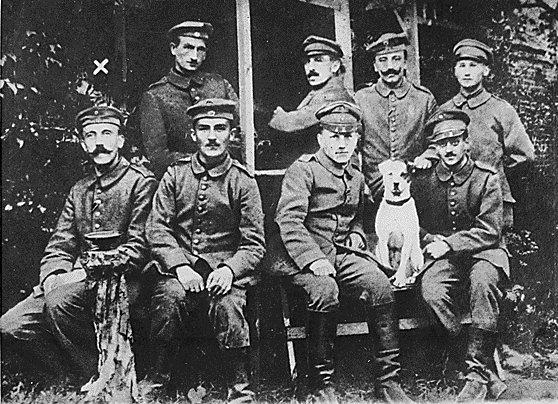
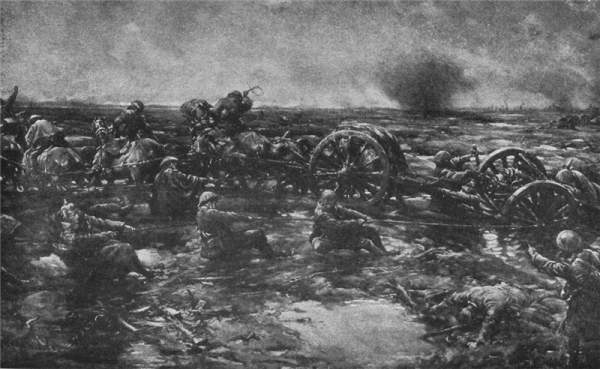
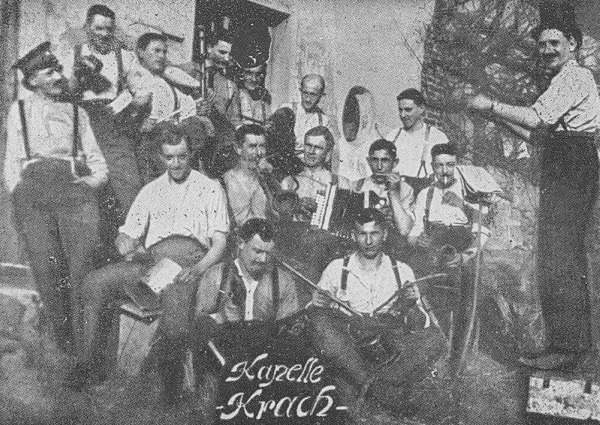
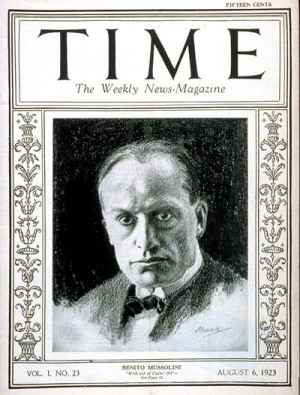
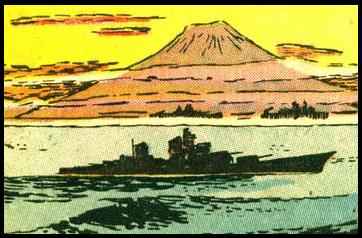


levi.bookin@gmail.com










Fair Use Notice: This site may contain copyrighted material the use of which has not always been specifically authorized by the copyright owner. We are making such material available in our efforts to advance understanding of historical, political, human rights, economic, democracy, scientific, environmental, and social justice issues, etc. We believe this constitutes a "fair use" of any such copyrighted material as provided for in section 107 of the US Copyright Law. In accordance with Title 17 U.S.C. Section 107, the material on this site is distributed without profit to those who have expressed a prior interest in receiving the included information for research and educational purposes. If you wish to use copyrighted material from this site for purposes of your own that go beyond 'fair use', you must obtain permission from the copyright owner.
Please Note: The list-owner and moderators of 3rdReichStudies are not responsible for, and do not necessarily approve of, the random ads placed on our pages by our web server. They are, unfortunately, the price one pays for a 'free' website.



